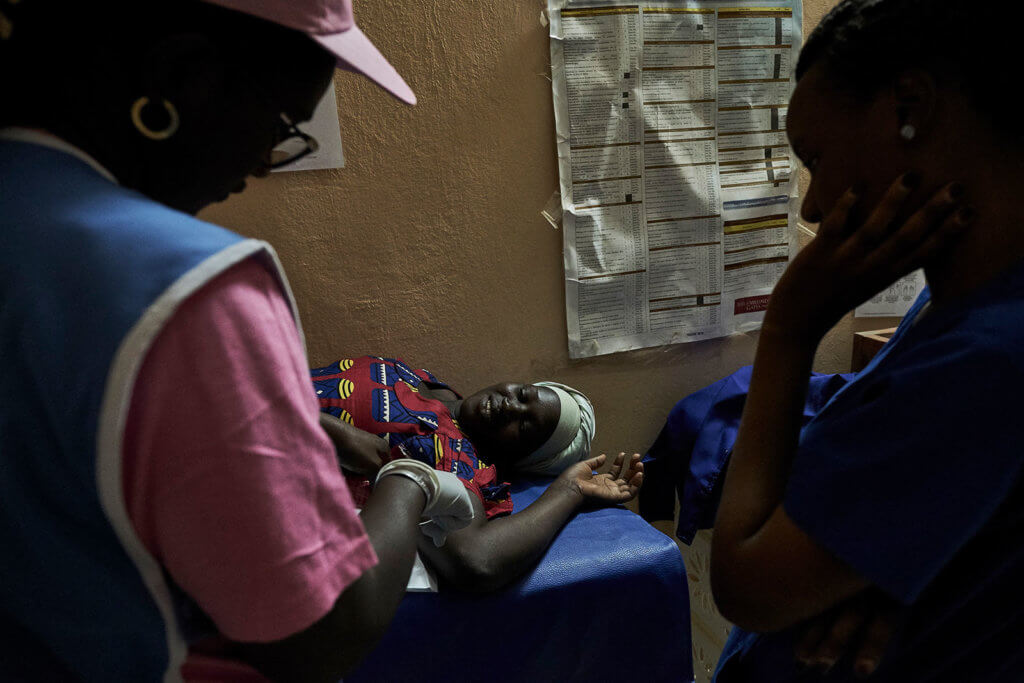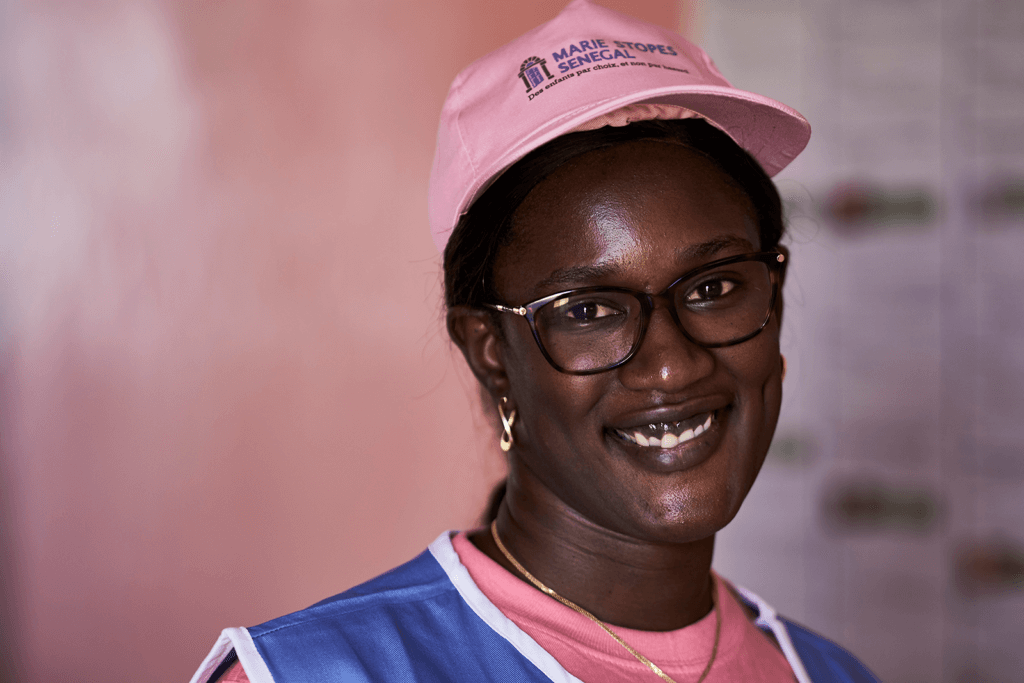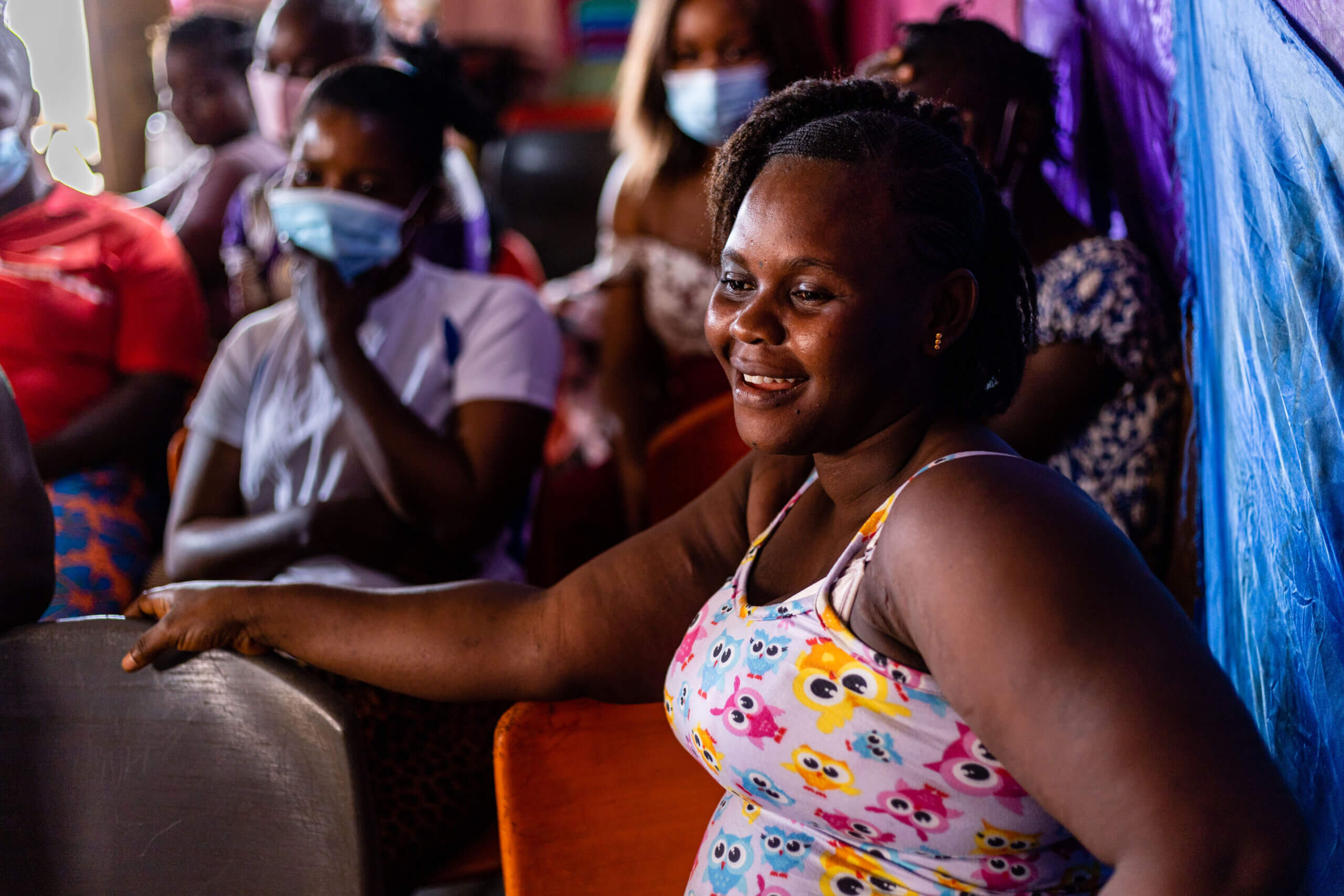Outreach at MSI
Senegal has one of the lowest rates of contraceptive use in the world. Just 27% of women are using modern contraceptives. But that’s starting to change, thanks in part to the work of courageous healthcare providers like Dias Seck. Dias is a member of one of MSI’s more than 400 outreach teams.
Meet MSI’s outreach teams
Dias is a midwife with MSI in Senegal, who travels to remote villages around the city of Louga to offer reproductive healthcare. Outreach teams like the one Dias is part of are our most effective way of reaching the millions of people who still don’t have access to contraception. Our teams drive, fly, sail or trek to deliver services to people in rural and remote communities. They offer a range of short-term, long-term and permanent methods.
She remembers a young woman named Safi who arrived at the outreach site as they were closing up after a long day. Safi* was 25 years old, and already had 7 children, some born less than a year apart.
“She was very tired,” Dias remembers. “Her husband didn’t allow her to use contraception.”
Dias had had a busy day. She often travels 125 miles to reach remote communities with contraception, sometimes serving up to 100 clients a day. But Safi had found the courage to seek contraception despite her husband’s objections. So, Dias invited her to come back the next day.
When Dias reached the outreach site at 8am, Safi was waiting for her. They had a long conversation about her options and hopes for the future.

Overcoming barriers to contraception
“When the women don’t understand family planning, I make sure to explain everything to them very clearly,” Dias says. “All the methods, all the possibilities, so they can make their own decisions.” Outreach teams serve communities where modern contraceptive options are limited or prone to stock shortages, and where long-acting or permanent methods such as intrauterine devices (IUDs) and vasectomies aren’t readily available. And they offer services for free or at subsidized rates, so cost isn’t a barrier to choice.
There are many factors that keep women like Safi from using contraception. Often, for women in rural areas, the nearest health post offering contraception is simply too far away. This is why outreach teams like Dias’s are essential. Over 50% of outreach clients live in rural communities. In these areas, hospitals are often scarce, expensive to reach, or lack equipment and trained providers.
Lack of family support, low literacy, and poverty can also discourage women from using contraception. At MSI, 42% of our outreach clients are living in poverty.

Changing lives for women in need
Dias continued to treat Safi for parasites, as well as treating one of her children who had fallen ill. Safi got stronger—and, for the first time, started making her own decisions about her future. “She told me that she wouldn’t give her husband another child,” Dias said. “She was very happy with my work, and I felt so good having helped her.”
Dias knows that when her clients are able to choose contraception, it impacts their whole lives. She says, “For women who have contraception, life has changed a lot because they now have time to educate their children, and to take care of their husbands and themselves.”
We’re committed to making sure that anyone who wants quality and modern contraception can get it, regardless of where they live or how much money they have. Women have a right to bodily autonomy, including deciding if and when to have children. We want people to be properly informed about their choices and empowered to take decisions that are right for them.
That’s why we don’t just turn up, give out condoms and leave. We give comprehensive care that continues long after we’ve left a site. We work to build lasting relationships with the communities we serve.
Dias took the time to really talk to Safi on a busy day—and it set Safi on a new path, one where she had control of her own life. Dedicated providers like Dias are making a difference in Senegal. Since MSI first began providing services in Senegal in 2011, contraceptive use has more than doubled. But our work isn’t done. Better sex education and greater awareness of the benefits of contraception are needed to continue this progress. We’ll keep working until every woman who wants contraception can access it.
* Name has been changed to protect privacy






